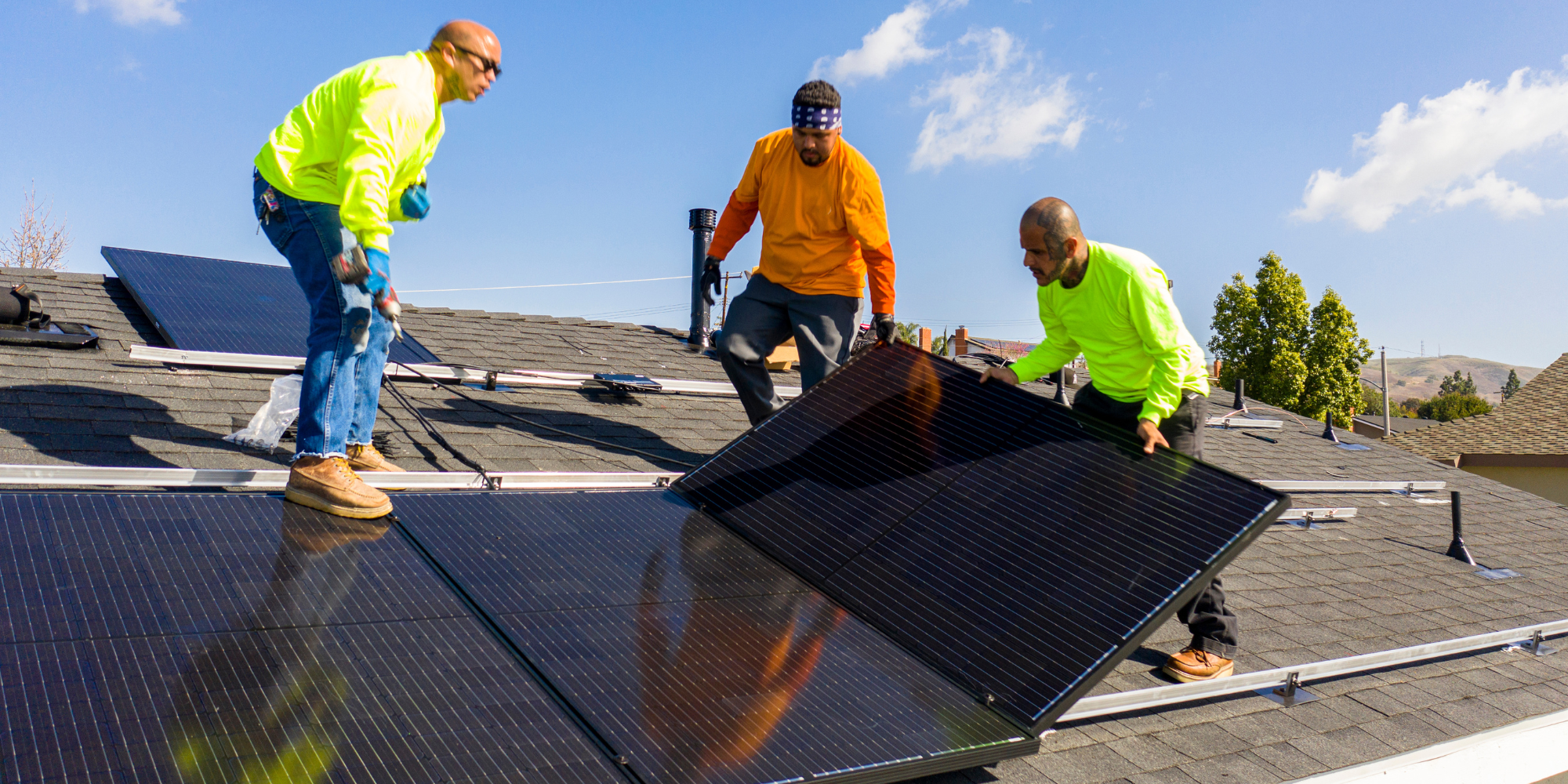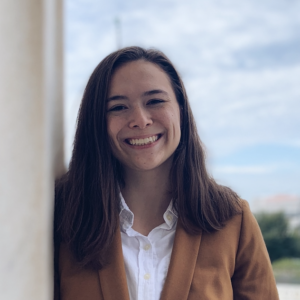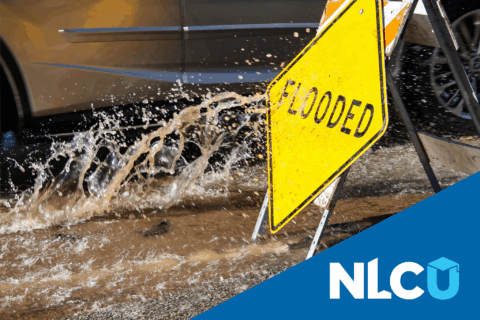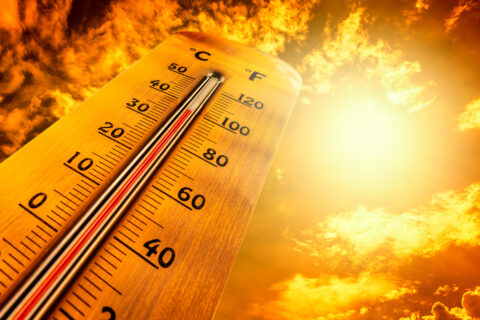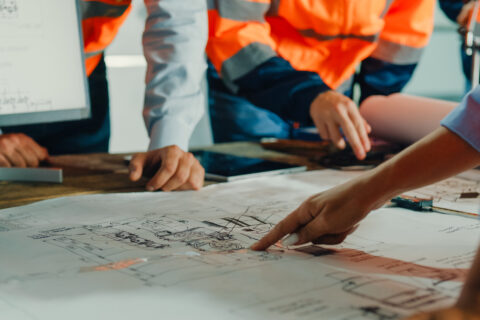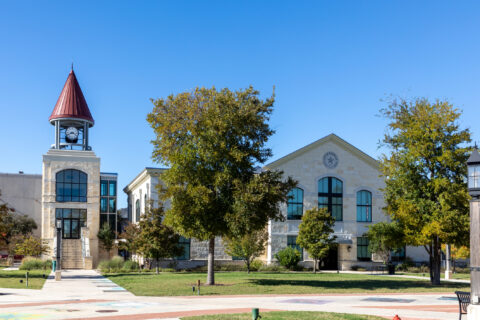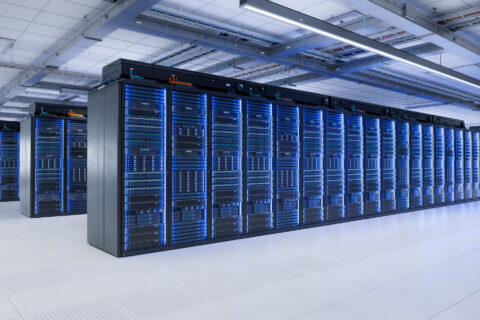The Bipartisan Infrastructure Law (BIL) allocates $550 million for the Energy Efficiency and Conservation Block Grant (EECBG) to support communities with financial assistance to complete renewable energy, sustainable transportation and energy efficiency projects. Cities with a population greater than 35,000 or the top 10 most populous cities in each state are automatically eligible for EECBG formula funding from the U.S. Department of Energy (DOE). Cities that do not meet the criteria for the formula funds are eligible to apply through their state.
DOE released draft formula allocations along with initial information on how to receive the funding. With a minimum formula allocation of $75,000, local leaders may be curious as to what kinds of projects they can tackle with the funding. The application process is expected to open in January.
Much of the program remains the same as when it was first funded under the American Reinvestment and Recovery Act over a decade ago, but communities are now able to use EECBG funding for projects on renewable energy, zero-emission transportation, and energy efficiency, giving local governments even more flexibility and creativity when deciding how to take on energy and environment-related projects. The EECBG requires no matching funds, and additional technical and financial assistance programs are available through the DOE Bipartisan Infrastructure Law portal, the Office of State and Community Energy Programs and by partnering with your state.
Below are examples of projects eligible for EECBG funds, relevant resources and other funding opportunities that can be leveraged.
1. Municipal fleet conversion to EVs
As municipalities focus on reducing their transportation emissions, many are taking action to convert their municipal vehicle fleet to electric vehicles.
- Evanston, IL passed a fleet electrification plan, including an analysis of the efficacy of the existing fleet, a comprehensive plan for its electrification of the fleet, and a resolution on the charging infrastructure necessary.
- Cleveland, OH will install EV charging stations as part of their goal of transitioning to all-electric municipal vehicles. The city has already ordered its first batch of 24 EV SUVs, pick-up trucks and other replacements.
- Boston, MA launched an EV school bus pilot program, which will deploy 20 electric school buses in the city during the 2022-2023 school year. Boston hopes to electrify its entire school bus fleet by 2030, as school buses alone account for 11% of municipal emissions.
- New York, NY will purchase 1,250 electric vehicles in FY 2022 in the effort to electrify their fleet by 2035.The city is also focused on expanding the municipal electric charging network with portable and solar powered chargers that allow more flexibility for emergency vehicles or during power outages.
- Madison, WI, Los Angeles and Mesa, AZ have purchased electric fire trucks that generate less noise than diesel-powered trucks and generate zero emissions without compromising on performance or operation.
Resources:
- DOE Developing Infrastructure to Charge Electric Vehicles
- DOE Clean Cities Coalition Network Technical Assistance
- Joint Office DOE and DOT – EV Infrastructure Planning and Implementation
- DOT Resources for EV Infrastructure Planning
- EPA Charging and Fueling Infrastructure Resources
2. Installation of solar panels on municipal buildings
To reduce grid reliance, municipalities have installed distributed energy resources such as solar panels on municipal buildings. Not only does this help a local government’s energy independence, it increases resiliency when the traditional energy grid may be damaged due to weather events.
- Batesville, AR installed a 759-kW solar panel system on its schools, the largest solar panel system of any school district in Arkansas. The change has led to a reduction in energy costs for the school district and doubles as an educational tool in their science curriculum.
- Denver, CO approved a $26 million contract with a third-party developer to build out their municipal distributed generation–starting with 10 solar power arrays–hosted on city-owned parking lots, rooftops and land to power city facilities. Thirty percent of the electricity generated will go to low-income families, about 150 homes.
- New Bedford, MA launched in 2011 a $40 million project to install solar panels on 10 city properties, including schools, land, and municipal buildings. By 2022, the city has 16.25 MW in privately-financed capacity and is ranked among the top municipalities for solar installation in the country, saving taxpayers $100 million each year. The city also provides comprehensive services for residents wishing to install solar on their homes.
Resources:
- SolSmart
- DOE Solar Energy Funding Resources and Technical Programs
- NREL Solar Decision Support and Resources for Local Governments
3. Residential Grants for energy efficiency projects
EECBG funds may also be used for grants and loans paid directly to residents pursuing electrification, energy efficiency and EV charging home improvements. Home energy efficiency programs decrease resident’s energy bills while also reducing the city’s overall carbon footprint.
- Portland, OR granted money to assist with the construction of green infrastructure and clean energy retrofits for qualifying residents’ homes. This includes providing funds to add solar panels and more energy-efficient HVAC units to affordable housing units.
- Takoma Park, MD allocates grants to residents to replace natural gas or propane appliances with non-fossil fuel-based alternatives, namely Energy Star high efficiency HVAC systems, water heaters, stoves and ovens. For low- to moderate-income homeowners, projects to install solar panels or EV charging equipment may also be eligible.
- Plano, TX, provides loans to residents seeking to make energy-efficient improvements to their homes.
Resources:
- State and Local Energy Efficiency Action Network
- DOE Office of Energy Efficiency and Renewable Energy Technical Assistance Program
- DOE Office of Energy Efficiency and Renewable Energy Funding Opportunities
4. Development of a clean energy workforce program
Another option to utilize EECBG funds is to support clean energy workforce programs that attract high-paying jobs to the community.
- Madison, WI’s workforce program trains unemployed and underemployed residents to install solar panels on city buildings through a mix of in-classroom learning and apprenticeship training.
- Chattanooga, TN’s Build It Green six-month to one-year workforce program prepares residents for jobs in residential energy services and weatherization, while also working with participants to enhance community engagement. This program was designed to be accessible to a more diverse pool of applicants, offering paid educational awards, child care assistance and health insurance.
- Charlotte, NC has launched the Renewable Energy and Efficiency Workforce (RENEW) Training Program, which provides paid training in the HVAC and electrical trades, with an emphasis on energy efficiency.
Resources:
5. Provide energy code compliance training
EECBG funds may be used to provide energy code updates and compliance training for inspectors. Using EECBG funds for energy code updates could be an attractive option for cities whose state will apply for additional competitive building code upgrade grants from DOE.
- Palo Alto, CA has invested in resources to provide on-demand green building code training, compliance checklists and links to relevant resources and documents. The trainings provide an in-depth look at both the residential and non-residential code, granting inspectors and the general public a full explanation of the green building and energy reach codes.
Resources:
Additional Funding Opportunities
Local leaders can also explore other federal, state or philanthropic funding sources for these and other clean energy projects that could be leveraged or stacked with EECBG funding to expand project scope or increase reach and benefits to the community. Other funding opportunities for broader, more general programs include grants for capital investments and resiliency.
Resources
Finding Funding Opportunities
NLC’s Infrastructure Insights Dashboard provides a searchable database of BIL programs to help local leaders match project type to funding opportunities.
USDN’s Funding Opportunity Tracker is a searchable database of current, forecasted, and archived opportunities for all federal and philanthropic grants focused on resilience, equity, workforce, and research, to help local sustainability directors plan for and align their project priorities to funding opportunities. To receive weekly updates on federal funding opportunities, related resources and trainings, join USDN’s Federal Funding Program Group.
The following is a list of open grant opportunities:
- DOE Sunny Awards for Equitable Community Solar
- Application deadline is October 7, 2022
- DOE Fiscal Year 2022 Vehicle Technologies Office Program
- Application deadline November 10, 2022
- DOE Advancing Equity through Workforce Partnerships
- Application deadline is December 6, 2022
- FEMA Building Resilient Infrastructure and Communities
- Application deadline is January 27, 2023
The following is a list of forthcoming and ongoing grant opportunities by eligible use. Notice of Intent or “NOI” is issued so that interested parties are aware of the funding department or agency’s intention to issue a NOFO in the near term; Notice of Funding Opportunity or “NOFO” is issued so that interested parties are aware that the funding opportunity is open for applications.
Capital Grants
- EDA Public Works and Economic Adjustment Assistance Grants
- HUD Community Development Block Grant Program
- USDA Community Facilities Grants and Loans
Electric Grid
- DOE Building a Better Grid
- NOFO TBD, NOI released January 2022.
- DOE Program Upgrading Our Electric Grid and Ensuring Reliability and Resiliency
- Anticipate NOFO Q3/Q4 2022.
- DOE Energy Storage Demonstration Pilot Grant Program
- Anticipate NOFO Q3 2022. * Also applicable to electric vehicle projects.
- DOE Energy Improvement in Rural and Remote Areas
- Anticipate NOFO Q3/Q4 2022. * Also applicable to energy resiliency projects.
Electrification
- DOT Port Infrastructure Development Program Grants
- Anticipate NOFO Q1 2023. *Also applicable to electric vehicle infrastructure and workforce development projects.
- DOT Capital investment grants
- NOFO TBD, pending full year congressional appropriations.
Electric Vehicles and Transportation
- DOE Electric Drive Vehicle Battery Recycling And 2nd Life Apps
- Anticipate NOFO Q2/Q3 2022.
- DOE Energy Storage Demonstration Pilot Grant Program
- Anticipate NOFO Q3 2022.
- DOT Charging and Fueling Infrastructure Grants
- Community Charging & Corridor Charging – Anticipate NOFO in 2022.
- DOT Electric or Low-Emitting Ferry Program
- DOT EV Infrastructure Funding and Financing for Rural Areas
- EPA Clean School Bus Program
- Federal funding opportunities for EV Charging
Energy Efficiency
- DOE Energy Efficient Transformer Rebates
- Anticipate NOFO Q3 2022.
- DOE Weatherization Assistance Program
- Anticipate NOFO December 2022.
- DOE Building Codes Implementation for Efficiency and Resilience
- Anticipate NOFO the end of 2022.
Home Repair
- HHS Low Income Home Energy Assistance Program
- Funding provided through state agencies, released in January 2022.
Solar
- DOE Renewables Advancing Community Energy Resilience (RACER)
- Anticipated NOFO in April 2023.
Workforce Development
- DOE Building, Training, And Assessment Centers
- Anticipate NOFO Q4 2022.
- DOE Career Skills Training
- Anticipate NOFO Q1 2023.
Technical Assistance
Additionally, through the Local Infrastructure Hub, NLC is providing a new technical assistance program to help small and mid-size cities and towns apply for 30 infrastructure programs authorized by the law BIL, including EECBG.
USDN provides a technical assistance program to help members successfully apply to federal grants. This program offers advisory coaching and support, proposal review and editing, and submission process guidance to members pursuing federal funding for high-impact sustainability projects.
Additional Resources
NLC hosted a “Investing in Clean Energy and Improving Energy Efficiency in Your Community” webinar with the Department of Energy on September 15th. Participants learned about climate-related programs like the Energy Efficiency and Conservation Block Grant (EECBG), the Weatherization Assistance Program (WAP), the Justice40 (J40) Initiative and other DOE funding opportunities put forth to improve energy efficiency, invest in renewable energy and reduce greenhouse gas emissions. NLC members can re-watch the webinar here.
